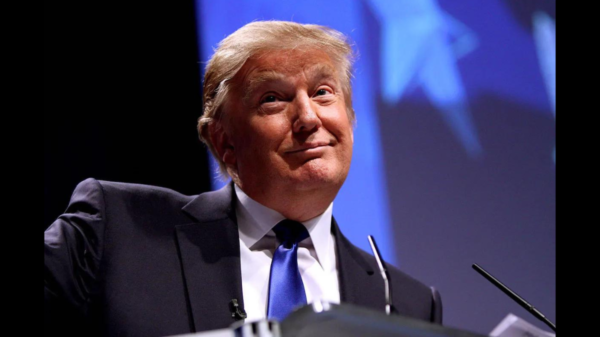
Special to the AFRO
By Roger House
President Biden’s visit to the Middle East should give pause to Black voters. One concern is that he risked the presidency by putting himself in harm’s way. Another is his dramatic shift in priority from domestic to wartime imperatives. And a third is the degree of political capital that Black leaders have committed to a president who is reluctant to heed the realities of age.
For older Black voters, Biden’s political risk-taking should recall the 60th anniversary of the assassination of President John F. Kennedy approaching — and the perils his demise created for the civil rights agenda in 1963.
The Black community, perhaps more than any others in the Democratic Party, are being asked to place their hopes on the unstable foundation of an octogenarian president, and a vice president many Americans find unpopular and unready. It has left them with little room to maneuver in case of unexpected events.
To be clear, Biden holds the loyalty of an overwhelming number of Black voters, even if some of that support is said to be slipping. Until now, the hope was that he would “finish the job” of protecting voting rights and overseeing inclusive infrastructure-hiring in his second term.
To date, however, his administration has gotten a pass with symbolic gestures under the realities of right-wing opposition. This includes historic appointments of women, non-economic resolutions, promises to arrest and jail fewer men and many photo-ops with Black politicos. It has cost Biden little in either real money or political capital to maintain the loyalty.
And after his speech to the nation, the priorities for a second-term have become clear: Biden has been quick to dedicate resources that might have advanced Black community priorities to more powerful coalition allies. His decision to invest heavily in the war in Ukraine is one example; another is his quick promise of billions in aid to Israel.
By comparison, it would be politically inconceivable for Black leaders to expect Biden to campaign with similar urgency for a reparations fund. Just imagine if his address to the nation included outlays of billions in seed money to a development bank for the descendants of slavery and Jim Crow?
The limits of relying on presidential power
As it does for many Americans, the fateful day of Nov. 22, 1963, will always stand out in my memory, even though I was only in kindergarten when Kennedy was assassinated. Then, as now, the Black community put its faith in a political strategy that relied unduly on the office of the presidency. The strategy was severely tested by his unexpected death.
I still recall the chaos that transpired on television: The murder of assassin Lee Harvey Oswald — shot dead on TV — and the funeral procession of the slain president. And I learned that some White students in Mississippi and other southern states cheered the announcement of his killing.
Like Biden, JFK believed in an active federal government to alleviate barriers of class and race in society. Kennedy directed resources in ways little used since the period of Reconstruction under President Ulysses Grant. He used the federal marshals to accompany Black students at southern universities and civil rights workers facing the violence of White supremacy.
And he used the Oval Office as a bully pulpit to shape public opinion to support racial justice. He went beyond words to campaign for a sweeping civil rights bill in Congress.
Then, JFK was allowed to be placed in an open top car for a slow drive through the hostile streets of Dallas, Texas. He would not live to see the bill become the transformational Civil Rights Act of 1964, or the ways in which its achievements would be undercut in later years.
Like Biden, JFK was part of a liberalism that affirmed the post-World War I diplomatic strategy of President Woodrow Wilson. A primary feature of “Wilsonian Democracy” was spreading the values of democracy and human rights overseas — and by extension, American power, of course.
The vision of a Pax-Americana world has been pursued by presidents since the end of World War II. JFK acted for the expansion of American power in Latin America, Southeast Asia and Europe during the Iron Curtain of the Soviet Union.
And America has been enmeshed in violent convulsions over the competing demands for racial justice and global power ever since. Presidents have sacrificed resources that could further the cause of racial justice at home for the cause of military adventures.
Black leaders have failed to heed the lesson of putting too many eggs in the basket of one presidential administration. Time after time, the community has watched the cost of waging war drain presidential resolve for correcting racial inequity at home. Such was the case with President Lyndon Johnson’s Great Society and War on Poverty initiatives in the climate of the Vietnam War.
Multiple pillars of political influence
Black political leaders must begin to look beyond the Biden administration. That’s because even if he is re-elected, the anxiety over his age and mortality will continue, as will his tone-deaf response to the realities of physical risk.
More importantly, his second term will prioritize multiple wars over the demands to address historic economic concerns, beyond token gestures. Our leaders must be cognizant of the tenuous nature of their standing going into the 2024 election.
Now is the time to begin promoting a strategy for a post-Biden White House. That means complementing the fledgling influence of Black political power at the federal level with the development of sustainable bases of power in the states.
One proposal is the strategic migration of Blacks voters from the politically repugnant states of the south to the four moderate states of Maryland, Virginia, North Carolina and Georgia. It will entail using the Democratic Party structures in Texas, Florida and the Mississippi Delta states to recruit middle-class voters in a project to build influence in multiple states for the future.









You must be logged in to post a comment Login